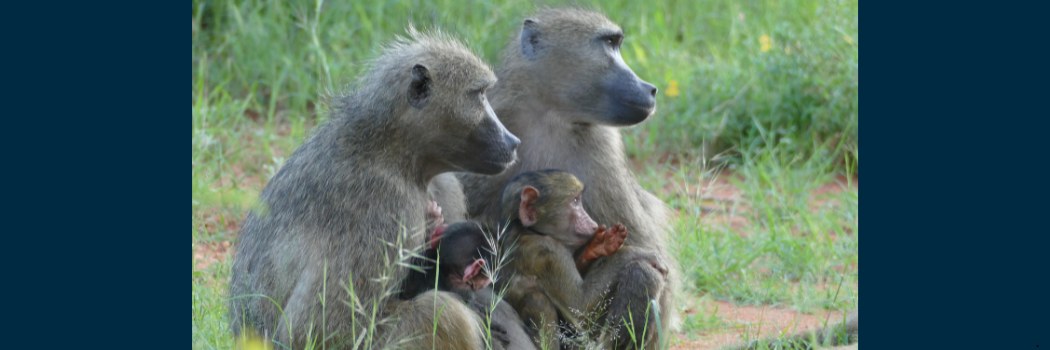
Human persecution leads to anxiety and physiological stress amongst baboons. That's according to the findings of new research by our Department of Anthropology.
The study looked at how a group of baboons living in Alldays, South Africa, responded following two fatal shootings by humans.
The findings showed prolonged increases in behavioural anxiety and physiological stress amongst the baboons. There were also long-term changes in behaviour.
Unique insights
The authors believe this study is the first of its kind, giving unique insights into the impacts of human persecution on surviving baboons.
It was led by Dr Mokhlesur Rahman as part of his PhD research looking at the behaviour of a group of chacma baboons who feed from a rubbish dump in Alldays, South Africa.
However, following two fatal shooting attacks on the baboons, Dr Rahman expanded his research to look at the impacts of these on the surviving members of the group.
To do this Dr Rahman monitored the feeding, ranging and behaviour of the baboons. He also analysed stool samples to see the physiological impacts.
Stress and anxiety
After the shootings the baboons significantly changed their ranging behaviours. They travelled faster and further away from their sleeping site (where the shootings had taken place) before ultimately abandoning the site altogether.
The research team noticed increased levels self-scratching amongst the baboons, a well-documented indicator of anxiety.
Across the group there was also a reduction in aggression and a shift in grooming patterns following the shootings.
Stool samples showed elevated levels of the stress-related steroid hormones glucocorticoid (GC) after the shooting events. These levels remained raised for several weeks.
Meanwhile, the relationship between the baboons and the workers at the garbage dump remained largely unchanged. This suggests that the baboons could distinguish the dump's workers as being non-dangerous.
Cost of human persecution
The study offers unique insight into the cost of human persecution of animals.
The research team argue that as human population expands and wildlife increasingly lives in closer proximity, insights such as this are vital to understand the potential impacts of human persecution.






